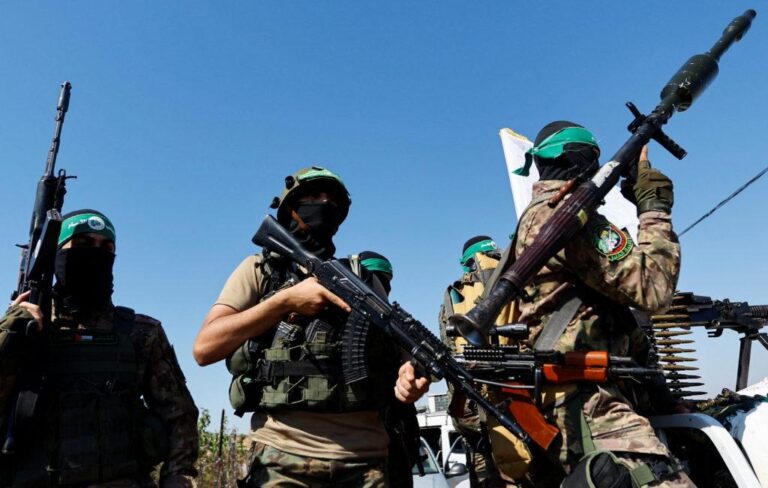Australia has moved to relist Hamas and Hezbollah among designated terrorist organizations, reinstating counter-terrorism sanctions against the groups. The decision, announced this week, underscores Canberra’s commitment to combating terrorism amid evolving regional security concerns. The relisting places tighter restrictions on financial and logistical support linked to the groups, reflecting growing international efforts to curb their activities. This latest development follows assessments by Australian authorities that continue to view Hamas and Hezbollah as significant security threats.
Hamas and Hezbollah Return to Australia’s Counter-Terrorism Sanctions List Amid Rising Security Concerns
In a decisive move addressing growing regional and domestic security issues, Australian authorities have reinstated Hamas and Hezbollah on their counter-terrorism sanctions list. This relisting restricts financial transactions and disables operations linked to these groups within Australian jurisdiction, reflecting increasing concerns over their potential influence and activities. Officials emphasize that these sanctions are not only a signal of Australia’s commitment to combating terrorism but also a proactive measure to thwart any emerging threats to national safety.
Alongside the relisting, the government has outlined several targeted actions aimed at disrupting the networks associated with these entities. The strategy includes:
- Enhanced surveillance and intelligence-sharing with international partners
- Stricter enforcement of asset freezes and travel bans
- Public awareness campaigns to educate citizens about the risks posed by these groups
| Action | Objective | Timeline |
|---|---|---|
| Asset Freeze | Prevent funding flow | Immediate |
| Travel Ban | Limit movement of operatives | Within 30 days |
| Intelligence Cooperation | Strengthen global efforts | Ongoing |
Impact of Sanctions on Australia’s Regional Diplomatic Relations and Counter-Terrorism Strategy
Australia’s decision to relist Hamas and Hezbollah among designated terrorist groups marks a significant shift in its regional diplomatic posture. This move is expected to enhance Australia’s collaboration with key Middle Eastern and regional partners, demonstrating a firmer stance on combating terrorism financing and related activities. However, it also risks complicating diplomatic engagements with countries that maintain differing views on these organizations. Balancing these tensions requires Australia to navigate a complex geopolitical landscape, ensuring that its counter-terrorism measures do not undermine broader strategic relationships or regional stability.
- Strengthened intelligence-sharing: Enhanced cooperation with allies such as the United States and Israel.
- Regional dialogue challenges: Potential strain with states sympathetic to Palestinian and Lebanese political factions.
- Economic implications: Targeted sanctions impacting funding networks tied to these groups.
| Aspect | Potential Impact | Diplomatic Response |
|---|---|---|
| Counter-Terrorism Cooperation | Improved intelligence exchange | Joint task forces and operations |
| Regional Alliances | Strained ties with certain Middle Eastern states | Increased diplomatic outreach and reassurance |
| Sanctions Enforcement | Reduced terrorist financing | Enhanced financial monitoring systems |
This recalibration of Australia’s counter-terrorism framework underscores a growing recognition of the evolving threats posed by these groups within and beyond the region. It also reflects Canberra’s commitment to adhering to international security norms while adopting robust measures to identify, isolate, and disrupt networks involved in terrorism. As these sanctions take effect, their ripple effects will likely be monitored closely by diplomats and security analysts, assessing how Australia’s assertive posture influences both its regional credibility and long-term strategic interests.
Policy Recommendations for Strengthening Australia’s Measures Against Designated Terrorist Organisations
Strengthening Australia’s counter-terrorism framework requires a multifaceted approach that extends beyond the simple relisting of groups like Hamas and Hezbollah. Experts emphasize the importance of enhancing intelligence-sharing mechanisms both domestically and with international allies to ensure timely identification and disruption of terrorist activities. Furthermore, legislative amendments aimed at closing loopholes in financing laws must be prioritized to effectively target the complex networks that facilitate material support to these organisations.
Key policy recommendations include:
- Expanding real-time data-sharing platforms among security agencies
- Increasing funding for community outreach programs to counter radicalisation
- Introducing stricter penalties for entities that provide indirect support
- Regularly updating the list of designated organisations through transparent review processes
| Policy Focus | Suggested Action | Expected Outcome |
|---|---|---|
| Intelligence Collaboration | Enhanced inter-agency task forces | Faster threat detection |
| Financial Controls | Expanded sanctions on indirect facilitators | Disruption of funding channels |
| Community Engagement | Support for deradicalisation programs | Reduced recruitment |
Key Takeaways
Australia’s decision to relist Hamas and Hezbollah underscores the country’s ongoing commitment to combating terrorism and maintaining national security. As these groups continue to pose significant threats on the global stage, the updated sanctions reflect the evolving landscape of counter-terrorism efforts. Authorities will remain vigilant in monitoring and countering activities linked to these organizations, reinforcing Australia’s stance against violence and extremism.




